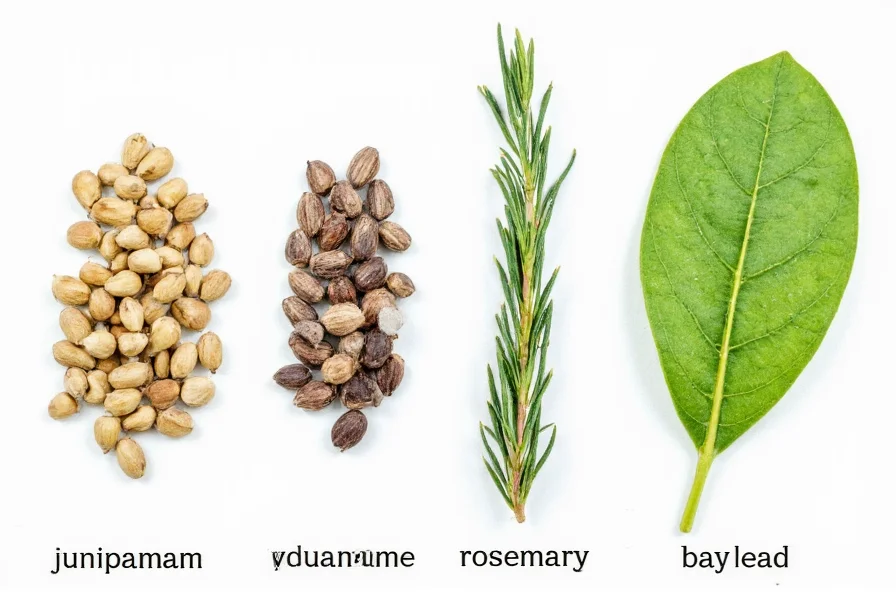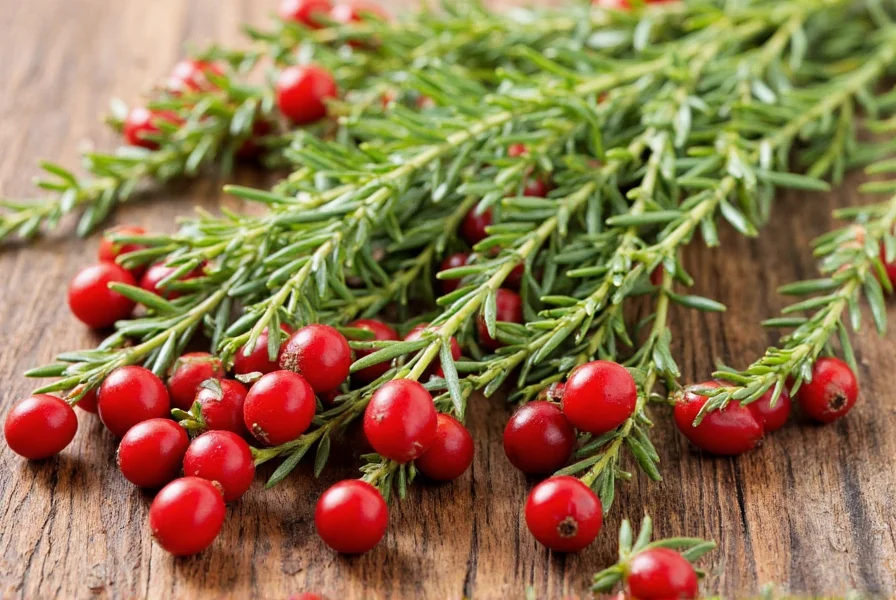When you're preparing traditional game recipes or crafting homemade gin and discover you're out of juniper berries, finding an effective replacement becomes essential. These small blue berries provide a distinctive pine-like, slightly citrus flavor that's challenging to replicate exactly, but several kitchen staples can serve as excellent alternatives depending on your specific culinary application.
Understanding Juniper Berries and Substitution Needs
Juniper berries, despite their name, are actually the female seed cones of the juniper plant. They're a cornerstone ingredient in classic European cuisine, particularly for game meats like venison and wild boar, and are the primary flavoring in gin. When seeking juniper berry alternatives, consider whether you need to replace their:
- Piney, resinous notes
- Citrus undertones
- Bitter complexity
- Preservative qualities (in pickling)
Many home cooks search for juniper berry substitutes due to limited availability, especially outside Europe, or because of medication interactions (juniper can affect certain diabetes medications). Others seek non-alcoholic alternatives when juniper's traditional pairing with gin won't work for their recipe.
Top 7 Juniper Berry Substitutes Ranked by Effectiveness

| Substitute | Best For | Substitution Ratio | Flavor Notes |
|---|---|---|---|
| Gin (1-2 tbsp) | Liquid-based recipes | 1-2 tbsp per 10 berries | Citrus-forward, less piney |
| Cardamom (ground) | Game meats, stews | 1/4 tsp per 5 berries | Citrusy with floral notes |
| Rosemary (fresh) | Roasts, marinades | 1 sprig per 10 berries | Piney, more herbal |
| Bay leaves | Slow-cooked dishes | 1 leaf per 8 berries | Subtle pine notes |
| Citrus zest | Pickling, sauces | 1 tsp zest per 5 berries | Citrus dominant |
1. Gin: The Liquid Alternative for Juniper Berry Flavor
When you need a liquid substitute for juniper berries, particularly in sauces or braising liquids, gin provides the most direct flavor connection. Since juniper is the primary flavoring in gin, using 1-2 tablespoons of standard gin can effectively replace 10 juniper berries in most recipes. This works especially well for juniper berry substitute for game recipes where the alcohol will cook off, leaving just the characteristic flavor.
2. Cardamom: Best for Complex Flavor Replacement
Ground cardamom offers the closest flavor approximation to juniper berries, particularly their citrus notes. Use 1/4 teaspoon of ground cardamom to replace every 5 juniper berries. Cardamom works exceptionally well as a juniper berry substitute for venison recipes, providing similar complexity without the pine notes. For best results, toast whole cardamom pods before grinding to maximize flavor.
3. Rosemary: Ideal for Meat Dishes
Fresh rosemary provides the piney quality of juniper berries with a more herbal profile. Substitute one small sprig of fresh rosemary for every 10 juniper berries. This works particularly well for roasts and grilled meats. When using rosemary as a juniper berry replacement in sauerkraut, use half the amount you would juniper berries to avoid overpowering the dish.
4. Bay Leaves: Subtle Pine Alternative
Bay leaves offer a mild pine-like flavor that works well in slow-cooked dishes where juniper berries would normally be used. Replace 8 juniper berries with one standard bay leaf. This substitution works best for juniper berry alternative for pickling recipes where the subtle flavor can develop over time. Remove bay leaves before serving, as they don't soften like juniper berries.
5. Citrus Zest: For Bright Flavor Notes
When you need to replicate juniper's citrus component without the pine notes, lemon or orange zest works well. Use 1 teaspoon of finely grated zest to replace 5 juniper berries. This is particularly effective as a non-alcoholic juniper berry replacement in marinades and salad dressings. For game meats, combine citrus zest with a small amount of rosemary for a more complete flavor profile.
How to Choose the Right Substitute for Your Recipe
Selecting the best juniper berry alternative depends on your specific dish:
- Game meats (venison, boar): Cardamom or rosemary provide the best complexity
- Pickling recipes: Bay leaves or citrus zest work best
- Homemade gin alternatives: Stick with actual gin for liquid recipes
- Vegetable dishes: Citrus zest offers the lightest touch
For juniper berry substitute for traditional sauerbraten, combine equal parts cardamom and allspice to replicate the complex spice profile. When substituting in recipes that call for crushed juniper berries, remember that most alternatives are more potent, so start with half the recommended amount and adjust to taste.
What NOT to Use as Juniper Berry Substitutes
Avoid these common but ineffective substitutions:
- Juniper essential oil (too concentrated and potentially unsafe)
- Other pine cones (may contain toxic compounds)
- Excessive amounts of any substitute (juniper's flavor should complement, not dominate)
Remember that juniper berries have natural preservative qualities, so when using substitutes in juniper berry alternative for curing meats, you may need to adjust your preservation methods accordingly.
Practical Application: Testing Substitutes in Your Kitchen
The best way to determine which juniper berry substitute works for your needs is through controlled testing. Prepare three identical small batches of a simple venison stew, each with a different substitute (gin, cardamom, and rosemary). Note how each affects the flavor after 24 hours of resting. This practical approach helps identify the best juniper berry replacement for your specific palate.

Conclusion: Finding Your Perfect Juniper Berry Alternative
While no single ingredient perfectly replicates juniper berries' unique flavor profile, understanding the specific qualities you need to replace makes finding an effective substitute straightforward. For most culinary applications, cardamom provides the most versatile replacement, while gin works best for liquid-based recipes. Always consider your specific dish requirements when selecting a substitute, and don't hesitate to combine alternatives for more complex flavor profiles. With these juniper berry alternatives, you can confidently prepare traditional recipes even when juniper berries aren't available.











 浙公网安备
33010002000092号
浙公网安备
33010002000092号 浙B2-20120091-4
浙B2-20120091-4